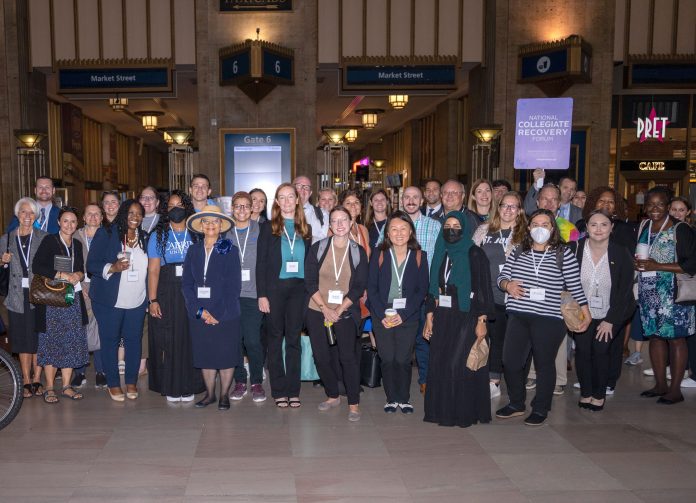PHILADELPHIA — September 21, 2022 — The Association of Recovery in Higher Education (ARHE) announced that Pennsylvania now has the nation’s most and is the fastest-growing state for collegiate recovery programs (CRPs), which support students in recovery from substance use disorder.* Ten new programs have launched in Pennsylvania in the past 12 months, all in Southeastern Pennsylvania. That growth is attributed to the leadership and investment by the Independence Blue Cross Foundation (Foundation). The announcement was made during a forum in Washington, D.C., attended by nearly 50 people from 12 institutions across southeastern Pennsylvania; as well as U.S. House of Representatives Madeline Dean (D-PA 4th District), Brian Fitzpatrick (R-PA 1st District) and Mary Gay Scanlon (D-PA 5th District).
Additionally, the Foundation has established a unique grant model for CRPs, which ARHE lauds as a gold standard to be implemented nationally. The grant provides for dedicated funding toward direct technical assistance, a train-the-trainer program that sets new programs up for success through guidance and mentorship. This assistance can be the difference between a failed and successful CRP and therefore, hundreds of changed lives.
“The support of the Independence Blue Cross Foundation has made a tangible impact for students in recovery — not just in the Greater Philadelphia region, but across Pennsylvania,” said Kristina Canfield, executive director at ARHE. “This effective model, including direct technical assistance is a game-changer, and we are eager to replicate it with schools across the nation.”
CRPs are an essential part of higher education in helping students sustain their way to recovery while pursuing a degree and career; and the Foundation is leading the charge to de-stigmatize substance use disorder on colApproximately two in five U.S. college students meet the criteria for substance use disorder and require treatment. CRP programs can vary but generally offer access to recovery resources, such as counseling or substance-free housing, Twelve Step support meetings, and events geared toward students in recovery.
“The Independence Blue Cross Foundation’s commitment to collegiate recovery is part of our greater effort to create and promote more inclusive recovery environments,” said Heather Major, executive director of the IBC Foundation. “Every individual deserves the opportunity to reach their full potential, including a college degree and career they enjoy. Supporting recovery programs helps these students while away from their natural support systems and is a top priority for the Foundation. We look forward to forging ahead with ARHE to make further progress in this space.”
Support for collegiate recovery builds on the Foundation’s STOP program, launched in 2017. Since 2017, the Foundation has invested more than $3 million to address the opioid crisis through grant funding, promotion, and expansion of safe medication disposal, the internationally reaching Someone You Know® podcast, and research.
*Ranking based on registered programs with ARHElege campuses. In 2021, the Foundation partnered with the ARHE to establish and expand recovery programming at college campuses, committing $1 million to date. In one year, 12 new programs have been established or expanded at colleges and universities across southeastern Pennsylvania. Beyond recovery itself, CRPs also contribute to better academic outcomes and successful recovery. Students involved in CRPs collectively have a higher average GPA than the general student body and are reported to have higher than average graduation rates.


